
The Complete Works of Thomas Otway
现货!非代购!非“海外库房”发货!限量本《托马斯奥特维全集》只有毛边卷三
¥ 159 九品
仅1件
作者OTWAY, Thomas; edited by Montague Summers
出版社Nonesuch Press
出版时间1926
装帧精装
尺寸26.5 × 20.5 cm
上书时间2024-11-19
- 在售商品 暂无
- 平均发货时间 1小时
- 好评率 暂无
- 店主推荐
- 最新上架
商品详情
- 品相描述:九品
- 图书馆藏书,只有卷三,缺前两卷 328页。
- 商品描述
-
奥特韦(Otway,Thomas ;1652~1685)
英国剧作家。生于1652年3月3日,卒于1685年4月10日。作品有《阿尔西比亚德斯》、《西班牙王子堂·卡洛斯》、《孤儿·或不幸的婚姻》和《威尼斯得免于难》。前两部是诗体英雄悲剧,后两部则以无韵诗写成,抛弃英雄剧旧套,代之以普通人的常情,因而更能引起悲怆和共鸣。他还写过3部具有强烈讽刺效果的喜剧 :《友谊时尚》、《 士兵的好运》和《无神论者》。
Thomas Otway (3 March 1652 – 14 April 1685) was an English dramatist of the Restoration period, best known for Venice Preserv'd, or A Plot Discover'd (1682 In 1675 Thomas Betterton produced Otway's first play, Alcibiades at the Dorset Garden Theatre, where all but one of his plays would eventually be produced. It is a tragedy, written in heroic verse, saved from absolute failure only by the actors. Elizabeth Barry took the part of Draxilla, and her lover, John Wilmot, 2nd Earl of Rochester, recommended Otway to the Duke of York (later King James II). He made a great improvement in Don Carlos, Prince of Spain (licensed 15 June 1676). The material for this rhymed tragedy came from the novel of the same name, written in 1672 by the Abbé de Saint-Real, the source from which Friedrich Schiller also drew his tragedy of Don Carlos. In it the two characters familiar throughout his plays make their appearance. Don Carlos is the impetuous, unstable youth, who seems to be drawn from Otway himself, while the queen's part is the gentle pathetic character repeated in his more celebrated heroines, Monimia and Belvidera. It got more money, says John Downes (Roscius Anglicanus, 1708) of this play, than any preceding modern tragedy.[5]
In 1677 Betterton produced two adaptations from the French by Otway, Titus and Berenice (from Racine's Bérénice), and the Cheats of Scapin (from Molière's Fourberies de Scapin). These were printed together, with a dedication to Rochester. In 1678 he produced an original comedy, Friendship in Fashion, which was very successful.[5]
In February 1680, the first of Otway's two tragic masterpieces, The Orphan, or The Unhappy Marriage, was produced at the Dorset Garden, with Mrs. Barry playing the part of Monimia. Written in blank verse, modeled upon Shakespeare, its success was due to Otway's mastery of tragic pathos found in the characters of Castalio and Monimia. The History and Fall of Caius Marius, produced in the same year as The Orphan, and printed in 1692, is a curious grafting of Shakespeare's Romeo and Juliet on the story of Marius as related in Plutarch's Lives.[5] Caius Marius was incredibly popular during its time, outperforming Romeo and Juliet for at least seventy years following its initial release. [7]
In 1680, Otway also published The Poets Complaint of his Muse, or A Satyr against Libells, in which he retaliated against his literary enemies and critics. An indifferent comedy, The Soldier's Fortune (1681), was followed in February 1682 by Venice Preserv'd, or A Plot Discover'd. The story is founded on the Histoire de la conjuration des Espagnols contre la Venise en 1618, also by the Abbé de Saint-Réal, but Otway modified the story considerably. The character of Belvidera is his own, and the leading part in the conspiracy, taken by Bedamor, the Spanish ambassador, is given in the play to the historically insignificant Pierre and Jaffeir. The piece has a political stance, with the narrative influenced by the fictitious conspiracy of the Popish Plot, which heightened anti-Catholic sentiments in England in favor of political advancement. His frustrations with such political scandals are evident in a caricature of Anthony Ashley Cooper, 1st Earl of Shaftesbury, a founder of the Whig party in the character of Antonio and in the play's "Prologue", in the following lines:[5]
"Poland, Poland! Had it been thy Lot,
T'have heard in time of this Venetian Plot;
Thou surely chosen hadst one King from thence,
And honour'd them as thou hast England since."
The allusion is to rumours current at the time that Shaftesbury had planned to make himself King of Poland. Because of this, and the silver pipe John Locke had inserted into him to drain an abscess, he was popularly referred to as "Count Tapski".[5]
Venice Preserv'd also contains an allusion to Rochester's famous deathbed conversion, as reported in Gilbert Burnet's Some Passages of the Life and Death of.. Rochester (1680). The conversion was doubted by many, and Otway is obviously skeptical, for when Pierre is on the scaffold, attended by a priest, he is made to say the following to his executioner (Act V, scene ii): "Captain, I'd have hereafter / This fellow write no Lies of my Conversion."[5]
The play won instant success. It was translated into almost every modern European language, and even Dryden said of it: "Nature is there, which is the greatest beauty."[5]
The Orphan and Venice Preserved remained stock pieces on the stage until the 19th century, and the leading actresses of the period played Monimia and Belvidera. His last and most obscure play is The Atheist (1684), although many see it as a way to cash in on his previous comic success with The Soldier's Fortune, some see it not as a weak sequel but as a "brilliant experiment."[8] One of the aims of the play is to show what happens after the wedding as sentimental conclusion in plays of the period through the figures of Courtine and Sylvia. The bleakness of their relations taint those of Beauregard and Porcia. The complexity of the plot, some of which derives from the "Invisible Mistress," the first interpolated story in Paul Scarron's Roman comique,[9] speak of the maze of human life, a meaningless world left for the audience to decipher. One or two prefaces, and two posthumous pieces, a poem, Windsor Castle (1685), a panegyric of Charles II, and a History of the Triumvirates (1686), translated from the French, complete the list of Otway's works. A tragedy entitled Heroick Friendship was printed in 1686 as Otway's work, but the ascription is unlikely.[5]
The Works of Mr. Thomas Otway with some account of his life and writings, published in 1712, was followed by other editions (1722, 1757, 1768, 1812). The standard edition is that by T. Thornton (1813).[5]
相关推荐
-

Shakespeare the complete work
八五品北京
¥ 200.00
-
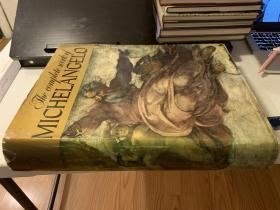
The complete work of Michelangelo
八品焦作
¥ 3600.00
-

the complete work of : michelangelo
八品北京
¥ 1460.00
-

Karl Blossfeldt: The Complete Published Work
九品上海
¥ 680.00
-
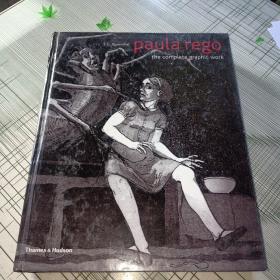
Paula Rego: The Complete Graphic Work
八五品北京
¥ 319.00
-

Karl Blossfeldt:The Complete Published Work
全新成都
¥ 500.00
-

Paula rego the complete graphic work
九五品广州
¥ 320.00
-

the complete guide to coaching at work【365】
九品合肥
¥ 50.00
-

Camera Work:The Complete Illustrations 1903-1917
八五品上海
¥ 168.00
-

Karl Blossfeldt. the Complete Published Work摄影画册
全新保定
¥ 800.00
— 没有更多了 —











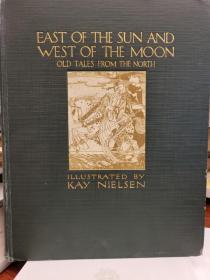


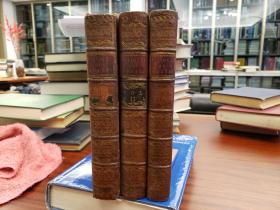
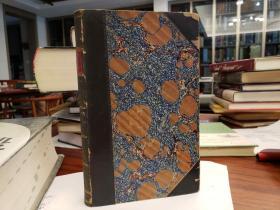
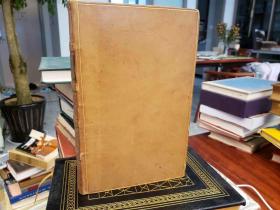




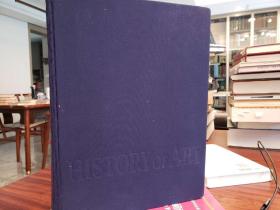



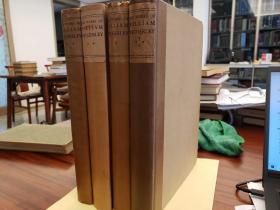




以下为对购买帮助不大的评价